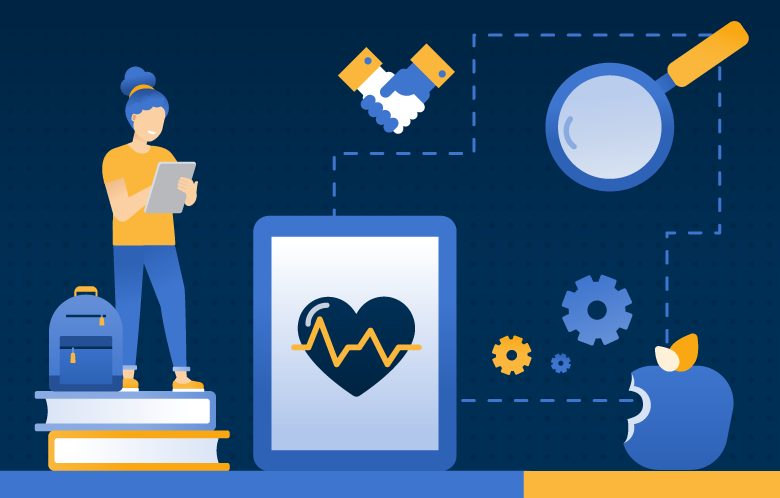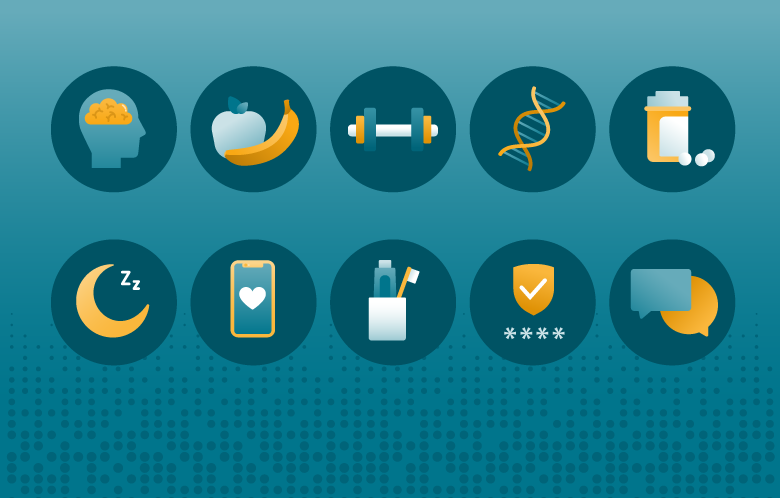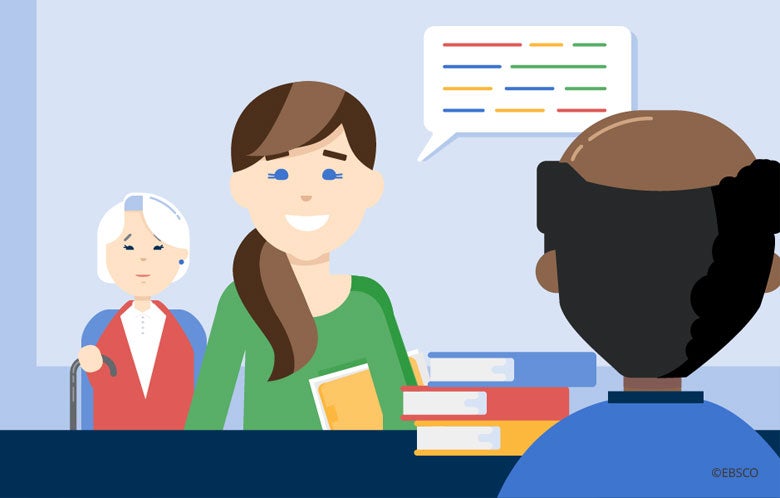Public libraries empower communities. One of the ways they do this is by promoting health literacy: the ability to find, understand and use information to make informed health decisions. In an era of information overload and digital misinformation, libraries are uniquely positioned to help patrons of all ages and backgrounds become confident advocates for their own well-being.
Making the Library a Trusted Health Information Hub
Libraries are one of the few places where people can ask sensitive questions without judgment. That trust is key to building a strong health literacy foundation. To strengthen this role:
- Train staff in reliable health information sources. Offer refresher workshops on evaluating websites and using resources such as MedlinePlus, Mayo Clinic and Consumer Health Ultimate.
- Curate health-focused collections. Stock shelves with accessible books on wellness, caregiving, mental health, nutrition and disease prevention. Include large-print and youth-focused titles. Publish an online pathfinder (e.g., LibGuide) containing links to reliable websites. The National Institute on Aging has tips for finding reliable health information online that would be helpful to patrons, especially older adults.
- Feature take-home resources. Collaborate with local health departments to distribute multilingual brochures and flyers on topics like vaccines, mental health support and chronic disease management.
Tip: Create a permanent health information display or bulletin board that’s updated monthly with timely topics like heart health (February), mental health (May), breast cancer awareness (October) or flu prevention.
Navigating the Line: Librarians as Information Guides, Not Health Experts
Although librarians play a key role in connecting patrons to accurate, up-to-date health information, they are not health care providers. Maintaining this distinction is essential to ensuring both ethical service and patron safety.
Libraries can support staff by:
- Offering guidance on what librarians can and can’t do. Make sure all staff members understand the difference between helping someone find health information and giving medical advice.
- Creating a clear referral protocol. Build a list of local and national health hotlines, clinics and medical providers that staff can refer patrons to when questions go beyond the scope of library services. Consider creating a pathfinder or LibGuide that curates this information.
- Using disclaimers when appropriate. Signage, brochures or web content can include simple language like: “This information is for educational purposes only and is not a substitute for professional medical advice.”
By embracing the role of trusted navigator, not medical expert, librarians maintain the confidence of patrons while staying within their professional lane.
Leveraging Consumer Health Databases
When patrons turn to “Dr. Google,” they may end up with confusing, outdated or inaccurate information. That’s where vetted consumer health databases come in. Databases such as Consumer Health Ultimate offer evidence-based, easy-to-understand content covering thousands of health topics — from chronic diseases and mental health to fitness and nutrition.
Unlike general internet searches, consumer health databases are curated by experts and updated regularly. They often include translated content, visual aids such as videos and animations, and tools that accommodate different learning styles and reading levels. Public libraries that provide access to these databases give patrons a vital tool for researching health questions privately and confidently.
Be sure to actively promote your consumer health database to increase awareness and usage. Here are a few tips to get you started:
- Include the database on your library’s homepage or online resources page with a clear call to action. EBSCO provides free product buttons to use on library websites.
- Offer database tutorials during library computer classes.
- Create bookmarks or posters that highlight its benefits. (Our promotion kits contain free materials to help you market your resources.)
- Promote the database on your library’s social media channels.
- Offer one-on-one tech help appointments.
Supporting Wellness Through Programs and Partnerships
Health literacy goes beyond reading. It's also about engaging with information in meaningful, practical ways. Libraries can support wellness by offering:
- Workshops on managing diabetes, high blood pressure and other chronic conditions
- Nutrition or cooking classes led by local dietitians
- Mindfulness, meditation or movement sessions such as chair yoga or tai chi
- Health insurance help, especially during open enrollment
- Author talks or community health panels
- Seasonal health clinics, such as flu shots or vision screenings (a great opportunity to partner with local hospitals and public health departments)
Meeting the Needs of Diverse Populations
Health literacy is not one-size-fits-all. To ensure equitable access:
- Provide resources in multiple languages
- Offer low-literacy or visual-friendly health materials
- Design culturally inclusive programs that reflect your community’s demographics
- Set aside sensory-friendly hours or quiet spaces for neurodivergent patrons or those with anxiety
Ask for feedback from community groups or patrons to learn which health topics matter most to them — and let that guide future programming.
Libraries as Health Literacy Leaders
Whether it’s pointing a patron to reliable health information, helping someone understand a new diagnosis, or offering a calm space for quiet reflection, public libraries are essential to community health. By building strategic partnerships, offering inclusive programming, and promoting trustworthy digital resources such as Consumer Health Ultimate, libraries can help people live healthier, more informed lives.


